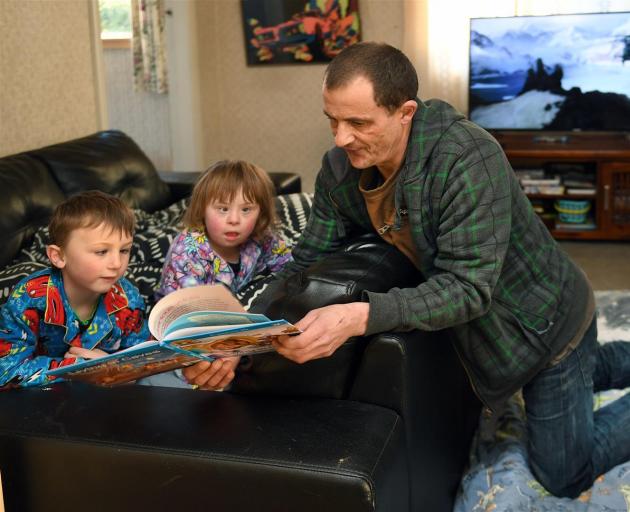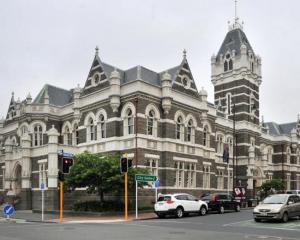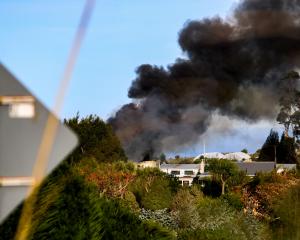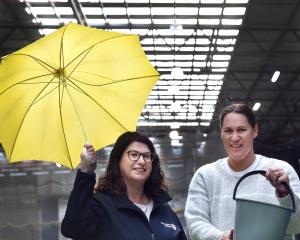
Recently released data from the Ministry of Social Development shows 118 people or families in Dunedin waiting for government housing at the end of March, with 28 extra already in such housing waiting to be transferred to more suitable homes.
The number waiting to be housed in the city has risen by 36% since December and 76% since June 2014, when ministry records start.
On top of this, the Dunedin City Council housing waiting list is more than 180.
Social agencies say there are many hundreds more in need of housing.
Brendan Selwood lives with his two children in a rented house in Brighton, which he says is falling apart.
He had been on the urgent list for a government house since December, he said.
''It probably shouldn't be rented. It's got no insulation, it's damp, the windows don't shut properly. Just before I fell through the floor.''
Because it was so damp in other rooms he and his family mostly all slept in the lounge, he said.
His 8-year-old daughter had Down syndrome and ADHD and a frightening tendency to run away from the poorly fenced property.
''She'll just head off to the beach. It's pretty full-on.''
The condition of the house made him worry about the children's health.
Salvation Army community ministries manager David McKenzie said the situation in the city was worse than ever.
Within one week the organisation was made aware of two pregnant teenagers couch surfing because they could not find anywhere to live, he said.
There were people in need of housing who for various reasons did not appear on either the government or council waiting lists, and that group was growing, Mr McKenzie said.
''It's been extrapolated out between the different social agencies and it could be 600 people a year needing accommodation.
''It's got worse, it's got a lot worse.''
Invercargill is also feeling the sting, with the government housing list rising from 20 to 53 since December.
Invercargill deputy mayor Rebecca Amundsen said she was ''not surprised'', as a council-commissioned report last year stated the problem would worsen.
While the city successfully attracted people to work, finding them accommodation was more difficult, she said.
Ministry of Social Development housing deputy chief executive Scott Gallacher said the country was experiencing an increase in demand for housing support.
''There are a number of reasons behind the increase, including more people coming forward to ask for support; housing demand exceeding supply in most areas of the country; and housing costs becoming increasingly unaffordable for many New Zealanders.
''We know more housing is needed to support people in all communities, including Dunedin, and we're doing everything we can to bring on more supply.''
The Government was committed to increasing public housing by around 6400 homes nationally in the next four years, he said.
In March, there were 1379 social housing tenancies in Dunedin, up on 1366 in December.
It was important to note only 16% of applicants listed homelessness as their reason for applying , he said.
Advertisement
Comments
A complex issue. Immigration (inwards) and family dissolution are the main drivers over the last 20-30 years. Also, 'cheap' interest rates raise the amount you can borrow, therefore house increasing prices even further as seen in the last 8-10 years. Limiting inwards immigration to only 'real' skilled workers and banning ALL sales to foreigners would be a good start until the situation improves.
Pointing the finger at the landlord over a damp home is unfair without a proper inspection. About half the people I know are clueless about how to ventilate and maintain a healthy home, and that has nothing to do with the landlord. Do the insulation yourself and ask the landlord for a refund, if you get a good price on materials I bet he agrees. I even put a driveway in a property I was renting, the landlord agreed and I just did it. It was win win, I got the design and position I wanted, and he got a free driveway.












